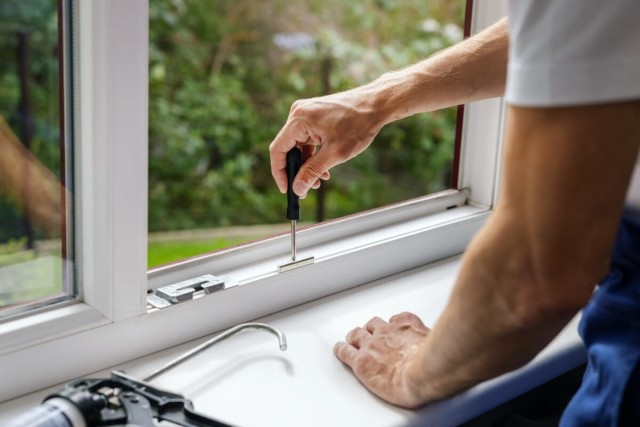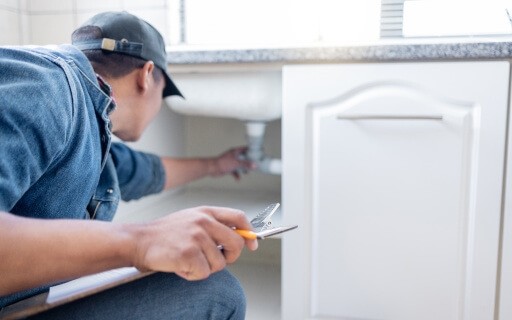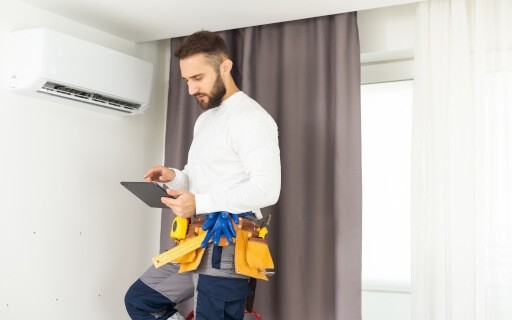In even the nicest, neatest homes, pests happen. Mice could find their way in, scurrying for tasty morsels from the kitchen while you're asleep. Ants, roaches, or termites might invade your space.
Even if you try to take measures to catch or rid these unwanted creatures, your efforts might not work. An exterminator may then be necessary. But who's responsible: the landlord or the tenant?
While the landlord is responsible for pest control in some situations, the ultimate responsibility depends on the nature and severity of the problem.
Is it a habitability issue?
Laws vary from state to state, and sometimes, from town to town. But no matter where you live, the landlord must ensure the rental is habitable.
Habitability means a home must have running water, heat, electricity, and no issues that could negatively affect a person's health or safety.
This is a habitability issue:
A hole in the roof that allows rain, insects, and squirrels to enter a rental unit. The landlord must repair this problem.
This is not a habitability issue:
Having a few ants in the kitchen. This a minor pest-control problem that the tenant can handle. Advise them to set out ant traps and clean the areas invaded by ants. That should suffice.
If you aren't sure whether the pest issue is also a habitability concern, check your local or state laws to determine the specific habitability requirements in your region. Look for wording that mentions pests or vermin and the landlord's responsibilities to deal with such problems.
Is it a preexisting pest-control issue?
If the rental is empty and there’s an ant infestation before the tenant moves in, the tenant is not to blame. The landlord needs to get rid of the ants.
Termites are generally a property-related issue. It's up to the landlord to treat the source of the problem, which could be wet, rotting wood on the exterior.
Consider hiring a pest control service to handle these types of issues. Request that any issues be reported by new tenants as soon as possible—before move-in or shortly after.
Sometimes it's the tenant's fault
If a tenant’s habits or self-created living conditions caused the problem, it's their responsibility to rectify it.
For instance, if the tenant has three cats that spend time outdoors and the cats bring in fleas, those fleas may be hiding in the carpet even after the tenant moves out. The landlord could charge the tenant for flea removal, deducting it from the security deposit.
Likewise, a roach infestation in an apartment full of dirty dishes and boxes of half-eaten pizza is no surprise. In that case, the tenant would be responsible for extermination costs.
Bed bugs: a complex problem
Bed-bug infestations have become so commonplace that some states have enacted new laws specific to these pests. In California, for instance, both tenants and landlords bear some responsibilities. Consider adding specific wording around bed bugs to the lease agreement.
It’s important to tackle bed bugs right away. This helps prevent the problem from becoming worse and from spreading to other units. An exterminator will inspect the potentially affected areas, such as bedding, carpets, and upholstered furniture.
In many cases, a landlord pays for bed-bug inspections and extermination fees. If the tenant is clearly to blame, the tenant could be responsible for extermination fees. For instance, if the tenant stays in a hotel room with bed bugs and now bed bugs are in the rental unit, after most likely coming home in their luggage, they could be responsible for extermination in your rental unit.
The bottom line
Ultimately, pest control depends on the severity of the issue and whether the tenant may have caused the infestation. Minor short-term issues are best handled by tenants. It's in the landlord's best interest to deal with any pest issues as soon as possible, including tenant-caused pest problems. The longer a pest issue goes unchecked, the worse the problem will become. In the case of a severe issue, ensure your tenant has an easy way to submit maintenance requests and get in contact with you. With Apartments.com, tenants can submit maintenance or service requests online, and you can update them as repairs progress.











